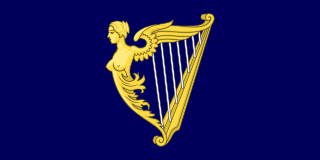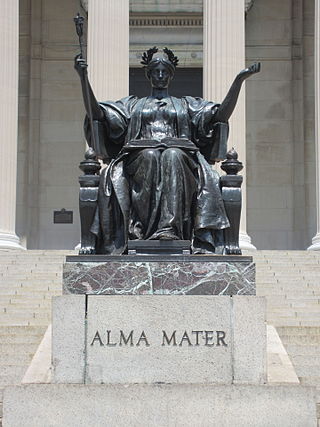
Recusancy was the state of those who remained loyal to the Catholic Church and refused to attend Church of England services after the English Reformation.

Anglo-Catholicism comprises beliefs and practices that emphasise the Catholic heritage and identity of the Church of England and various churches within Anglicanism. Anglo-Catholicism claims to restore liturgical and devotional expressions of church life that reflect the ancient practices of the early and medieval Church.

The Kingdom of Ireland was a dependent territory of England and then of Great Britain from 1542 to the end of 1800. It was ruled by the monarchs of England and then of Great Britain, and was administered from Dublin Castle by a viceroy appointed by the English king: the Lord Deputy of Ireland. Aside from brief periods, the state was dominated by the Protestant English minority. The Protestant Church of Ireland was the state church. The Parliament of Ireland was composed of Anglo-Irish nobles. From 1661, the administration controlled an Irish army. Although styled a kingdom, for most of its history it was, de facto, an English dependency. This status was enshrined in Poynings' Law and in the Declaratory Act 1719.

Alma mater is an allegorical Latin phrase meaning 'nourishing mother'. It personifies a school that a person has attended or graduated from. The term is related to alumnus, literally meaning 'nursling', which describes a school graduate.

The Elizabethan Religious Settlement is the name given to the religious and political arrangements made for England during the reign of Elizabeth I (1558–1603). The settlement, implemented from 1559 to 1563, marked the end of the English Reformation. It permanently shaped the Church of England's doctrine and liturgy, laying the foundation for the unique identity of Anglicanism.
Early modern Britain is the history of the island of Great Britain roughly corresponding to the 16th, 17th and 18th centuries. Major historical events in early modern British history include numerous wars, especially with France, along with the English Renaissance, the English Reformation and Scottish Reformation, the English Civil War, the Restoration of Charles II, the Glorious Revolution, the Treaty of Union, the Scottish Enlightenment and the formation and the collapse of the First British Empire.
Benet Canfield, also known as Father Benet, Benoit of Canfield, or Benoît de Canfeld, (1562–1610), was an English Recusant and mystic. His Rule of Perfection served as a manual two or three generations of mystics. For his influence on Madame Acarie, Pierre de Bérulle, André Duval, and Vincent de Paul he has been called the "Masters of masters".

The Catholic Church in England and Wales is part of the worldwide Catholic Church in full communion with the Holy See. Its origins date from the 6th century, when Pope Gregory I through a Roman missionary and Benedictine monk, Augustine, later Augustine of Canterbury, intensified the evangelization of the Kingdom of Kent, linking it to the Holy See in 597 AD.

The religious views of William Shakespeare are the subject of an ongoing scholarly debate dating back more than 150 years. The general assumption about William Shakespeare's religious affiliation is that he was a conforming member of the established Church of England. However, many scholars have speculated about his personal religious beliefs, based on analysis of the historical record and of his published work, with claims that Shakespeare's family may have had Catholic sympathies and that he himself was a secret Catholic.
Joseph Gillow was an English Roman Catholic antiquary, historian and bio-bibliographer, "the Plutarch of the English Catholics".

Herwig Wolfram is an Austrian historian who is Professor Emeritus of Medieval History and Auxiliary Sciences of History at the University of Vienna and the former Director of the Institute of Austrian Historical Research. He is a leading member of the Vienna School of History, and internationally known for his authoritative works on the history of Austria, the Goths, and relationships between the Germanic peoples and the Roman Empire.
The Catholic Record Society is a scholarly society devoted to the study of peri- and post-Reformational Catholic Church in England and Wales founded in 1904. It has been described as "the premier Catholic historical society in the United Kingdom", and has been credited with making much otherwise obscure archival material more readily available.
Michael C. Questier is an English academic and historian.
The Recusancy referred to those who refused to attend services of the state-established Anglican Church of Ireland. The individuals were known as "recusants". The term, which derives ultimately from the Latin recusare, was first used in England to refer to those who remained within the Roman Catholic Church and did not attend services of the Church of England, with a 1593 statute determining the penalties against "Popish recusants".
The Wisbech Stirs was a divisive quarrel between English Roman Catholic clergy held prisoner in Wisbech Castle in the Isle of Ely, Cambridgeshire, towards the end of the reign of Elizabeth I of England. It set some of the secular clergy against the regular clergy represented by the Society of Jesus, the religious institute that was emerging as clerical leaders, and who wished for a more ordered communal life in the prison.

Cwm was a Jesuit gathering place, Ecclesiastical province and college in Llanrothal, Herefordshire, England. It became a Jesuit college in 1622. Based in a large farmhouse, the Cwm included two houses, called "Upper Cwm" and "Lower Cwm". They were divided by a walled forecourt and during their prime in the early 17th century each was able to generate £60 annually in rents from its own land.
Alexandra Marie Walsham is an English-Australian academic historian. She specialises in early modern Britain and in the impact of the Protestant and Catholic reformations. Since 2010, she has been Professor of Modern History at the University of Cambridge and is currently a fellow of Emmanuel College, Cambridge. She is co-editor of Past & Present and vice-president of the Royal Historical Society.
Peter Marshall is a Scottish historian and academic, known for his work on the Reformation and its impact on the British Isles and Europe. He is Professor of History at the University of Warwick.
Alison Shell is a British scholar and literary critic. She is a professor in the Department of English Language and Literature at University College London. Most of her scholarly work explores the relationship between Christianity and literature in Britain from the Reformation to the 21st century.
Dorothy Lawson was a recusant and Catholic priest harbourer.








